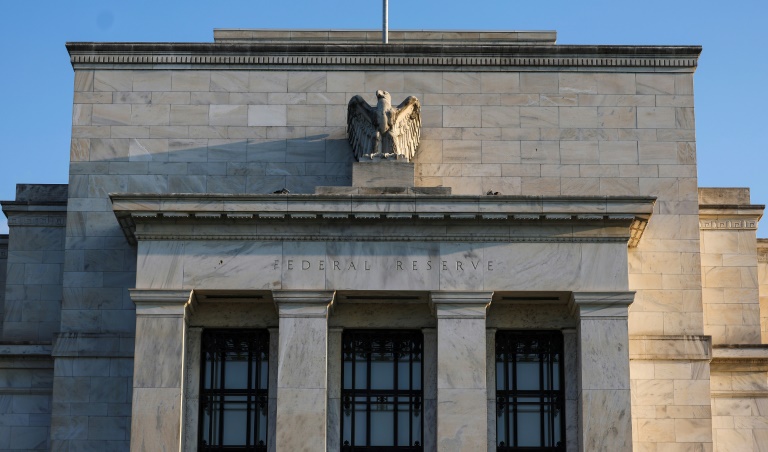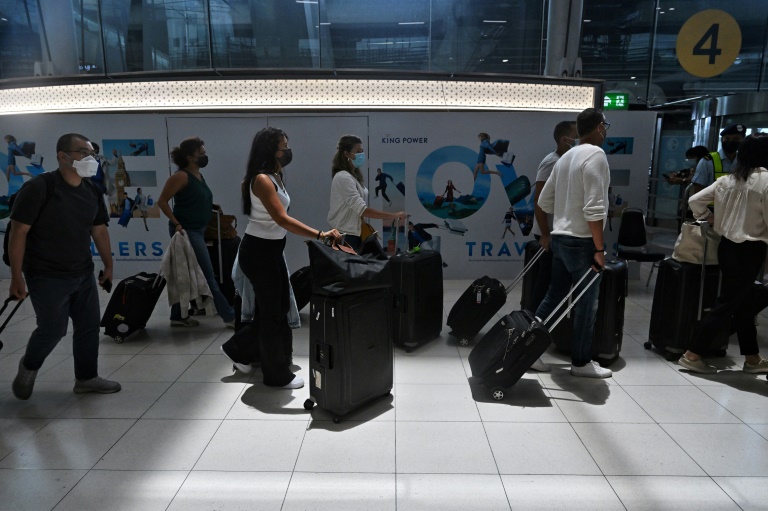Stocks climb before US inflation data
Stock markets mostly climbed Tuesday before the release of key US inflation data later in the session.
The November consumer price index (CPI) figures follow Friday’s forecast-beating print on US wholesale inflation, which dented hopes the Federal Reserve would scale back the size of its next interest rate hikes.
The central bank is widely expected to lift interest rates 50 basis points Wednesday — a slowdown from the previous four 75-point hikes — but its post-meeting statement and comments from boss Jerome Powell will be closely followed.
While the general view is that policymakers will stop increasing borrowing costs next year, there is debate about how high they will peak and when they will start to come down.
“I think CPI will be important but not necessarily for this meeting, for which a 50 basis-point hike is well flagged, but rather it will help determine the extent of further tightening,” said Mitul Kotecha, of TD Securities.
“Don’t expect clearcut signals from the Fed… on what they expect to be doing at early 2023 meetings,” said National Australia Bank’s Ray Attrill.
Elsewhere, China’s shift away from its economically damaging zero-Covid policy continued to support sentiment as the world’s number two economy opens up.
Top Chinese officials are meeting this week to draw up their economic blueprint for re-emerging from Covid, with observers predicting more stimulus measures and pledges of support for the troubled property sector.
But there is also a worry among investors that the quick relaxation of containment measures such as mass testing and lockdowns might lead to a massive surge in infections that could overwhelm the healthcare system and weigh on the economy.
Still, the expected pick-up in demand in China boosted oil prices further, with both main contracts extending Monday’s strong gains.
“China’s reopening is coming, it won’t happen overnight, but it will provide a major boost to demand in the outlook next quarter,” said OANDA’s Edward Moya.
Ahead of the Wall Street open, United Airlines unveiled an order of 100 new Boeing 787 Dreamliners with options for an additional 100 jets.
And the US Securities and Exchange Commission charged disgraced cryptocurrency tycoon Sam Bankman-Fried with defrauding customers of billions of dollars.
– Key figures around 1215 GMT –
London – FTSE 100: UP 0.4 percent at 7,475.26 points
Frankfurt – DAX: UP 0.8 percent at 14,421.53
Paris – CAC 40: UP 0.7 percent at 6,697.02
EURO STOXX 50: UP 1.0 percent at 3,959.22
Tokyo – Nikkei 225: UP 0.4 percent at 27,954.85 (close)
Hong Kong – Hang Seng Index: UP 0.7 percent at 19,596.20 (close)
Shanghai – Composite: DOWN 0.1 percent at 3,176.33 (close)
New York – Dow: UP 1.6 percent at 34,005.04 (close)
Euro/dollar: UP at $1.0541 from $1.0539 on Monday
Dollar/yen: DOWN at 137.41 yen from 137.66 yen
Pound/dollar: UP at $1.2290 from $1.2268
Euro/pound: UP at 85.96 pence from 85.78 pence
Brent North Sea crude: UP 0.6 percent at $78.47 per barrel
West Texas Intermediate: UP 0.4 percent at $73.49 per barrel







